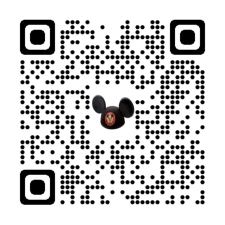How Is Disneyland Going To Solve Its Magic Key Problem The Fate Of Annual Passes At The Park Is Unclear
ID:
TMS-5066
Source:
SFGate
Author:
Julie Tremaine
Dateline:
Posted:
Status:
Current
On Monday, Disneyland announced a drastic change: the Magic Key passes are no longer for sale, with every tier of the annual passholder program listed as “currently unavailable.”
The change comes just a month before the earliest purchasers of the new program, which was launched last August, would have been eligible for renewal. While Disneyland had previously indicated that current passholders will be allowed to renew, that messaging has been removed from the Disneyland app.
“Passes are eligible for renewal 40 days prior to their expiration date,” the Disneyland app said as of May 24. “Renewing your Magic Key pass provides another year of reservation-based admission to both Disneyland Resort theme parks, plus valuable discounts, special offers, and invitations to Magic Key events.”
As of Thursday afternoon, that message is no longer present on the app.
It’s the latest development regarding annual passes at the park, which have been a pain point for the company since its pandemic closure in March 2020.
During that closure, Disneyland discontinued its existing annual pass program. “Due to the continued uncertainty of the pandemic and limitations around the reopening of our California theme parks, we will be issuing appropriate refunds for eligible Disneyland Resort Annual Passports and sunsetting the current program,” Disneyland President Ken Potrock said in a statement shared with SFGATE.? “We are currently developing new membership offerings that will utilize consumer insights to deliver choice, flexibility and value for our biggest fans.”
Back then, Disneyland fans reacted on social media with strong disappointment. “I know that sunsetting the Annual Passport program will be disappointing to many of our Passholders who are just as anxious as we are to reopen our gates and welcome Guests back when the time is right,” Potrock said in an email to then-passholders. “But we are also very excited about what’s ahead. We plan to use this time while we remain closed to develop new membership offerings that will utilize consumer insights to deliver choice, flexibility and value for our biggest fans.”
The next development in annual passes came a few months after Disneyland reopened in April 2021, when the company debuted a new offering: Magic Keys. Offered at four levels that were essentially the same as the previous four tiers of annual passes, and at the same price points, the new passes were widely accepted as reasonable substitutes. The main difference would be that Magic Keys required advance reservations, just as every Disneyland guest has been required to make since the park’s reopening.
When the reservation calendar initially opened up to passholders, limits on the number of such people who could get into the park on any given day were extremely low. Almost instantly, weekends were full for several months. The OC Register called it a “nightmare scenario.”
Fans were incensed, especially those who held the most expensive tier, called a Dream Key. "Call it a Dream Key because [your] dreams are the only way you're going to be at Disney," commented one frustrated passholder on TikTok in response to Disney's mangled response to Magic Key reservation shortages.
“This is going to get ugly fast,” Inside Universal’s Chris Glass said. “These limits are hilariously low right now.”
Anger and frustration at lack of passholder reservation availability came to a head when a Bay Area woman — and Disneyland passholder — filed a lawsuit in Dec. 2021, suing Disney’s theme parks over what she alleges are deceptive practices regarding its Magic Key passes.
In the $5 million lawsuit, Santa Clara County resident Jenale Nielsen claims that Disneyland is artificially limiting its capacity at the park for its passholders. In her suit, she noted that while she had purchased a $1,399 Dream Key annual pass — the most expensive one available — she encountered many blackout dates, including weekends, when she tried to make a reservation for November.
However, the suit claims that “Disney advertised and promised there would be no ‘blockouts’ for Dream Keyholders.”
A federal judge allowed the lawsuit to proceed in May, the OC Register reported. “The court finds that plaintiff has adequately pled facts supporting how a reasonable consumer may be deceived by the advertisement, which states ‘no blockout dates,’” the judge wrote in his ruling. “Plaintiff argues that ordinary consumers generally understand blockout dates to be ‘dates when tickets, credits, passes or rewards cannot be used.’”
The recent developments in that lawsuit — and any ensuing changes that need to be made to the program as a result of it — may well be the reason that the company has paused all sales of their Magic Keys. It still has many existing passholders concerned that they won’t be able to return to the park once their passes expire, or that they won’t be able to go if faced with having to pay face value for single-day tickets, which can top $200 on busy days.
But the significant limitations on Dream Key admission may have been part of Disneyland’s strategy all along. The company can raise per-person in-park spending by keeping out the people who tend to come to the park the most frequently but also spend the least money while they’re there.
“The season passholder is the ‘smartest’ visitor to the parks,” Dennis Speigel, founder and CEO of International Theme Park Services, a global theme park consultancy, told SFGATE in 2021. “They know when to come, what periods to avoid, how to, how to hit it at the right exact right time of day, weekend, weekday.” Those people, he said, “gobbled up capacity” and “didn't spend as much. They’d eat before they got there, or they’d eat after they leave, a lot of them, and they’d just ride rides.”
“I've been saying this for about seven or eight years,” Speigel said. “The season pass programs have gotten too large.” Disneyland had an estimated one million annual passholders in 2019. The company does not release figures on the number of passholders or park capacity.
If limiting passholders per day was in fact a financial strategy, it has worked. In the most recent earnings call, Walt Disney CEO Bob Chapek reported that per capita spending was up 40% in Q2 of 2022.
How pausing sales of Magic Keys will impact that profit margin — or guests hoping to attend the parks this summer — is yet to be seen.






